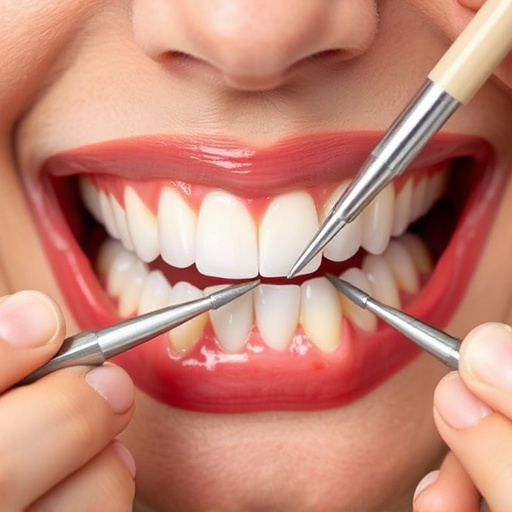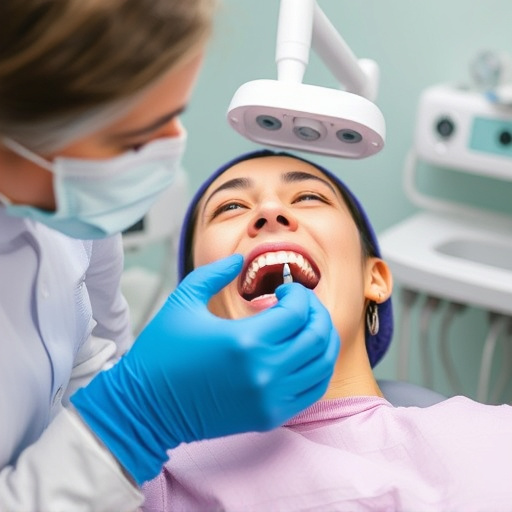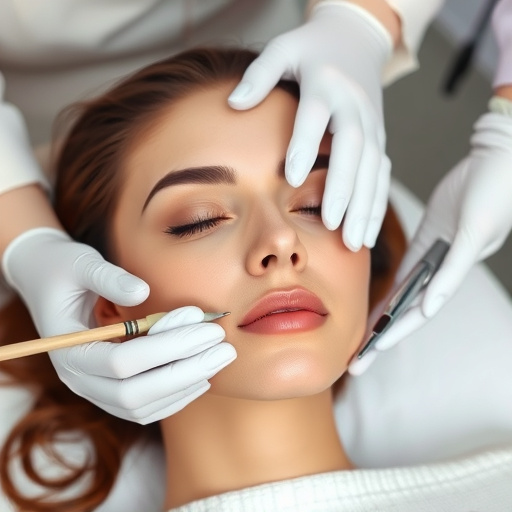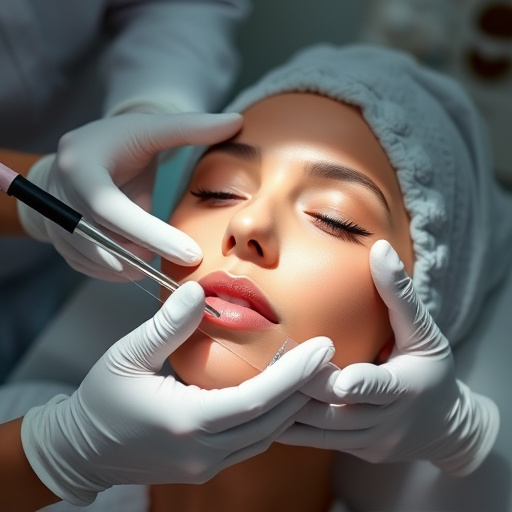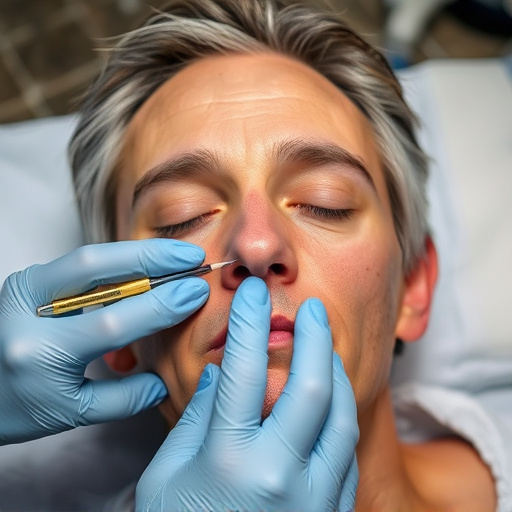Retinoids, powerful allies against cystic acne, regulate skin cell growth, unclog pores, and reduce inflammation. They enhance various treatments and offer anti-aging benefits while preventing scars. By stimulating collagen production and minimizing pore size, retinoids ensure clear, healthy skin. Integrating them into a cystic acne treatment plan provides effective, gentle management with potential for significant improvement over time.
Cystic acne, a severe form of acne characterized by painful cysts, demands targeted treatments. Retinoids, derived from vitamin A, have emerged as powerful allies in the fight against cystic acne. This article delves into the world of retinoids, exploring their unique ability to unlock the body’s natural defense mechanism against acne. We’ll uncover how these compounds disrupt the cyst formation process and offer practical management strategies for integrating retinoids into comprehensive cystic acne treatment plans.
- Understanding Retinoids: Unlocking Acne Combat
- Mechanism of Action: How Retinoids Target Cysts
- Integrating Retinoids: Effective Cystic Acne Management Strategies
Understanding Retinoids: Unlocking Acne Combat
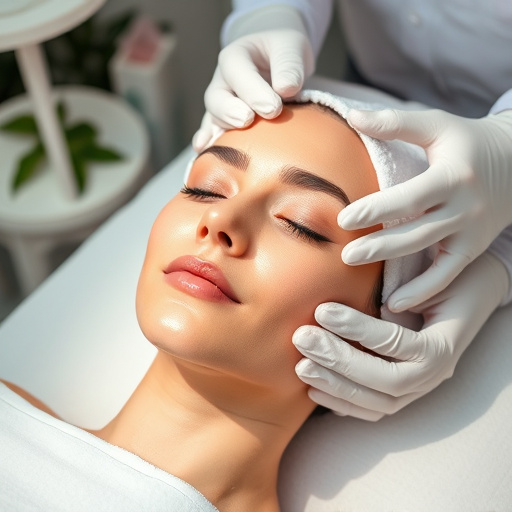
Retinoids are a powerful ally in the battle against cystic acne, offering targeted and effective solutions for those seeking effective cystic acne treatment. These derivatives of vitamin A play a crucial role in regulating skin cell growth and turning over, which is particularly beneficial for unclogging pores and reducing inflammation. By unlocking these key functions, retinoids can significantly enhance the effectiveness of various acne treatments, from topical creams to more advanced procedures like microneedling therapy.
Understanding the mechanism behind retinoids’ action provides insight into their potential as both anti-aging treatments and powerful acne-fighting agents. Their ability to stimulate collagen production, boost cell turnover, and minimize pore size makes them a valuable addition to any cystic acne treatment plan. This not only helps in managing active breakouts but also prevents future acne scars, offering a comprehensive approach to achieving clear and healthy skin.
Mechanism of Action: How Retinoids Target Cysts
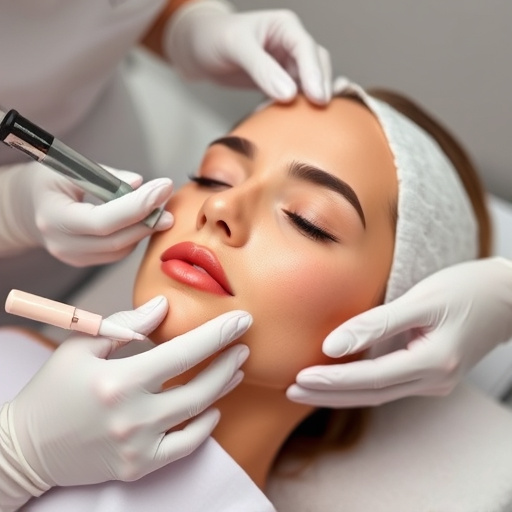
Retinoids are a powerful ally in the battle against cystic acne due to their unique mechanism of action. These derivatives of vitamin A play a crucial role in cystic acne treatment plans by promoting skin cell turnover and unclogging pores, which are often clogged with sebum and dead skin cells, leading to inflammation and cyst formation. By speeding up the replacement of old skin cells with new ones, retinoids help to keep pores clear and reduce the chances of cyst development.
Moreover, retinoids have anti-inflammatory properties that soothe and calm the skin. They work by modulating certain genes involved in inflammation, which helps to decrease the redness, swelling, and pain associated with cysts. This dual action—exfoliating to unclog pores and reducing inflammation—makes retinoids an effective ingredient in many cystic acne treatments, often paired with other modalities like hydrating facials and pore refinement aesthetic treatments for comprehensive care.
Integrating Retinoids: Effective Cystic Acne Management Strategies
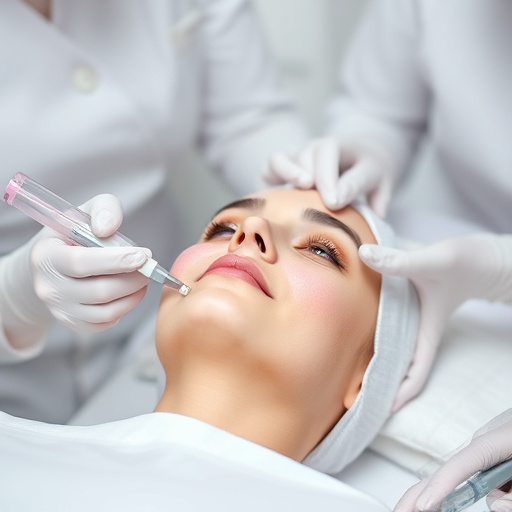
Integrating retinoids into a cystic acne treatment plan is a highly effective strategy. These powerful derivatives of vitamin A have been shown to significantly improve skin health by unclogging pores, reducing inflammation, and preventing new blemishes from forming. When incorporated into a well-rounded approach, retinoids can be a game-changer in managing this stubborn condition.
Non-surgical treatments like retinoid therapy offer a gentle yet potent solution for cystic acne. While they may cause temporary skin dryness or irritation, many patients find that consistent use leads to clearer, smoother skin over time. Additionally, hydrating facials and other soothing skincare routines can complement retinoid treatment by keeping the skin moisturized, which is crucial for maintaining overall skin health during active treatment.
Retinoids play a significant role in managing cystic acne, offering a targeted and effective approach. By understanding their mechanism of action and integrating them into comprehensive treatment plans, individuals can experience improved skin health and reduced cystic lesions. Incorporating retinoids alongside other evidence-based strategies ensures a robust solution for those seeking effective cystic acne treatment.



